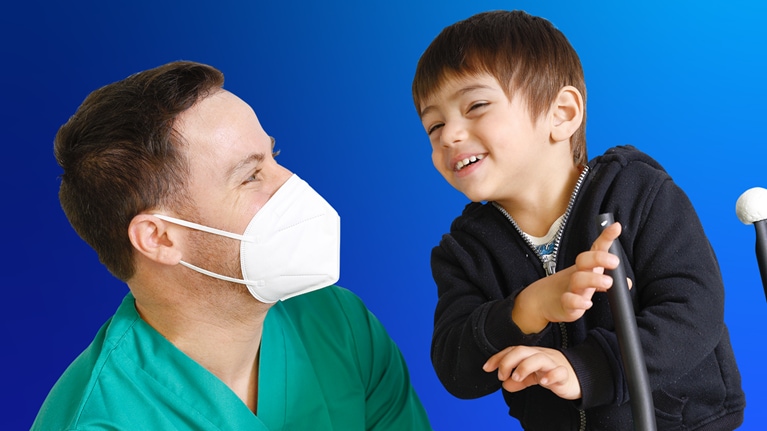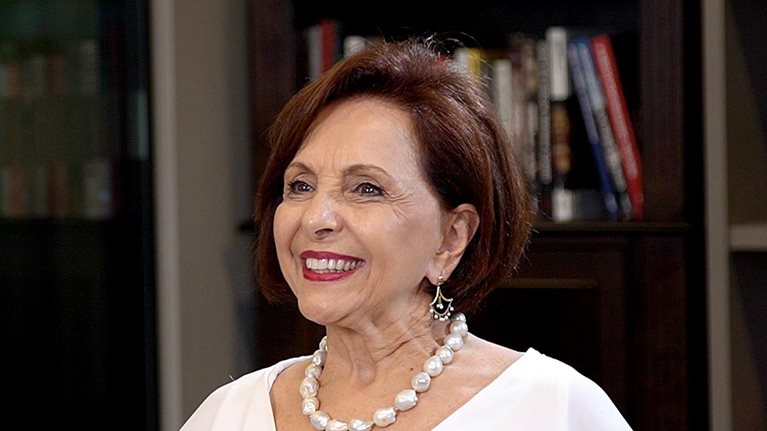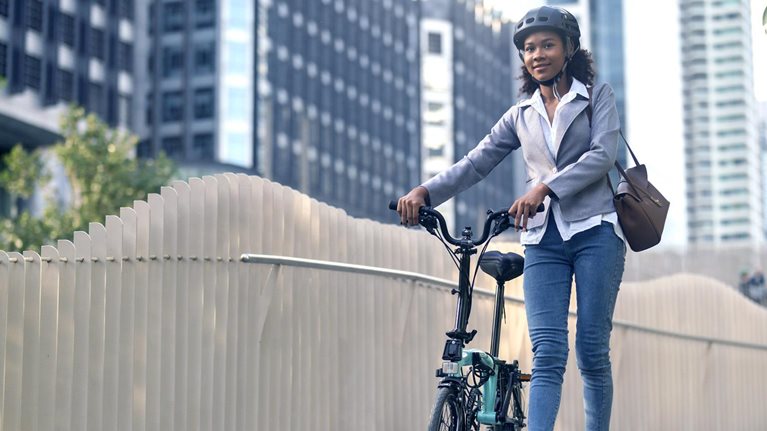Since its founding in 1968, Special Olympics has grown into a global program that provides year-round athletic training and competition for millions of children and adults with intellectual disabilities.1 The program fosters and celebrates its athletes’ abilities and promotes equal access to healthcare for all, according to Dimitri Christakis, MD, a professor of pediatrics and epidemiology at the University of Washington and the chief health officer at Special Olympics International. Christakis leads the organization’s health programs—including prevention, assessment, training, and health system strengthening—to improve the holistic health of more than five million Special Olympics athletes and others with intellectual disabilities.
Sunny Sun, a coleader on disability inclusive health for the McKinsey Health Institute (MHI), caught up with Christakis on the sidelines of the World Health Assembly in Geneva, Switzerland, where the theme was “All for Health, Health for All.” They discussed how Christakis and his team are working to gather disability inclusion data from around the world using the Missing Billion framework.2 MHI has partnered with the Missing Billion initiative to accelerate the movement on inclusive health and publish novel insights to promote change at scale for 1.3 billion people worldwide living with disabilities.
The conversation—part of MHI’s Conversations on Health series—has been edited for clarity and length.
Sunny Sun: Approximately 1 to 3 percent of the global population have an intellectual disability—as many as 200 million people.3 Can you share what Special Olympics International is doing in the disability inclusive health space?
Dimitri Christakis: We have four pillars to our health agenda, called the PATH to Health Equity. There’s an acronym there: the P stands for prevention. We are very active in early childhood, with our young athletes’ program for children ages two to eight. We’re trying to promote inclusive play and improve cognitive development through appropriate games and experiences.
The “A” is for assessment. We do health assessments all over the world to help identify people who have an intellectual or developmental disability [IDD], identify any problems they may have that are amenable to healthcare, and make referrals as appropriate.
The “T” stands for training. We recognize that most clinicians who care for people with IDD don’t have training specific to providing equitable care. I’m guilty of that myself. I never got any training when I went through medical school about caring for people with IDD.
The “H” stands for health system reform. It’s very clear that a lot of the inequities will require policy changes. And we are actively trying to change the way health systems are financed, organized, and operated.
Sunny Sun: You’ve laid down a very comprehensive approach. Where do you see the most advancement happening across these pillars globally? And what more still needs to be done?
Dimitri Christakis: I wish I could say we’ve made an enormous amount of progress, and the optimist in me would like to say that. We are active in all of those pillars, and we’re eager to work with other people that are active in all of those spaces.
One of the newest initiatives we’ve launched is our Rosemary Collaboratory, under our health system reform pillar. We’re using the Missing Billion framework that we’ve adapted to include policies relevant to intellectual and developmental disabilities specifically, and we are doing assessments in seven countries and three US states to see what the current policy status is in terms of promoting equitable practices for people with IDD.
The second part will be actively advocating to try and make changes in specific policies that those countries or states believe are ripe for change. We know there’s a lot of work to be done. Hopefully [the assessment results] will motivate change.
Sunny Sun: How can we scale best practices around the world to really help achieve the United Nations’ goal of ensuring healthy lives and promoting well-being for all at all ages?
Dimitri Christakis: It’s an excellent question. The first thing to note is that advocacy is a team sport. We really need to make sure that everybody who’s working in the space, trying to effect that change, is working cooperatively and collaboratively with each other.
We’re already finding that we need to partner with people who are trying to move the needle the same way we are. My hope is that the Missing Billion approach—the Rosemary Collaboratory approach—will lend itself to others adapting it in other countries.
But I also want to emphasize that the existence of a policy itself isn’t necessarily sufficient to achieve equity. I like to say it’s necessary, but not sufficient. It’s one of the easier things to measure and an important process step. But what we’re finding in the Rosemary Collaboratory work so far is that the assessors are saying, “You know, there is a policy, but it’s not enforced. And it doesn’t appear to be very effective.”
Sunny Sun: That sentiment really resonates in some of the countries we are working in as well, on disability inclusion. Often there’s a law or a policy, but the interpretation and implementation are lacking. So here we are in Geneva—on the sidelines of the World Health Assembly [WHA]. What do you hope to see coming out of gatherings such as WHA?
Dimitri Christakis: I really hope we can build coalitions and get a lot of momentum behind focusing specifically on IDD as an area of health equity, or health inequity. I know there are a lot of other competing priorities. But I think one of the important things that people often fail to recognize is that—with all the attention on vulnerable populations—there really isn’t a more vulnerable population than people with IDD.
And there’s enormous intersectionality. Choose any population, then cross it with IDD, and you’ll find that population is doubly, triply, or quadruply vulnerable as a result of whatever other underlying risk factor they have coupled with having an intellectual and developmental disability.
Sunny Sun: What motivates you to work in the IDD space?
Dimitri Christakis: I’m late to the party. I’ve been a scientist and a researcher for the better part of 30 years. In my clinical role as a pediatrician, I’ve taken care of people with intellectual and developmental disabilities. But that’s been a very narrow window both into their lives and into the problem. My work was hospital-based, so I would only see them when they were very sick in the hospital. I never saw them out in the community.
The most exciting thing for me about working at Special Olympics is seeing all the extraordinary things [these athletes] do, and the people that work with them do—the families, coaches, and volunteers, and all the people that have dedicated some of their lives to helping people with IDD. I believe that the moral compass of a society is best assessed by how well they take care of their most vulnerable. And there is no more vulnerable population than people with IDD. So, to me, moving the needle on that is making the world a better place.


